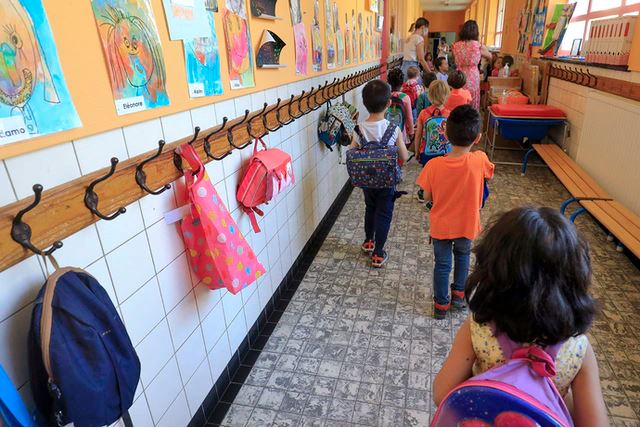The education sector in Flanders is calling for structural funding for after-school care, of which the very existence is threatened by a lack in resources and professionally-trained staff.
Although it is not in their competence, schools organise childcare outside of school hours for pupils who arrive at school early, or cannot go home immediately after class, because the request from parents is so high, according to Katholiek Onderwijs Vlaanderen, the umbrella organisation for education in Flanders.
"Schools hardly receive any resources for childcare because the government does not expect this of education, but for parents good childcare in the morning, afternoon or evening is often a necessity," the organisation's Director-General Lieven Boeve said.
He explained that four out of ten Catholic primary schools organise care without external support, while more than half of the Catholic primary schools having to divert resources intended for education to the organisation of after-school care, which is "at the expense of the quality of education."
Although most schools ask parents to pay a small fee for both before and after school care, this only covers part of the cost.
Meanwhile, not every school is financially strong enough to use its own resources for this care, leading to large differences in offerings, and unfair competition between the schools of the different networks, "especially where the municipality invests heavily in their own childcare," said Boeve.
Lack of trained staff
Aside from the budget difficulties, the sector has also stressed the difficulty of finding sufficient and capable staff to take on this task.
"More than half of the salary costs of our maintenance staff, kitchen staff and childcare workers are spent on morning, afternoon and evening childcare, but it also keeps getting harder to find people who want to do this job," Kim Verzeele, headmaster of Sint-Macharius Free Primary School in Laarne, said.
Related News
- Children's painkillers: Pharmacies face unexpected shortage
- Flanders invests less than €3 per child per hour in daycare
To reduce personnel costs, many schools rely on the system of community work, through which long-term jobseekers can gain work experience, however, these are not always pedagogically trained, and often work on a temporary basis, meaning less continuity for schools and making it harder to build up trust relationship with the children.
Katholiek Onderwijs Vlaanderen is now pleading for the government to come up with a solution, arguing that organising childcare is a shared responsibility between education and welfare.
"The governing role of the municipality in the decree on before- and after-school childcare must be clear so that all parties involved know where they stand and what the local government is taking on," Boeven said. He added that the government must provide resources for the recruitment of quality staff with the necessary basic education.

